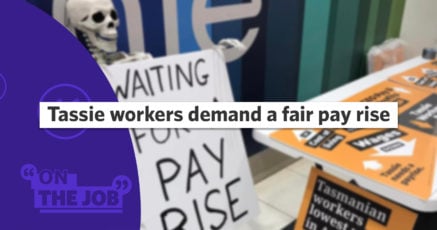What price for human rights?
That is the question that is on the agenda for Australia as Parliament gets set to ratify the Regional Comprehensive Economic Partnership (RCEP) trade deal.
RCEP involves Australia, China, Japan, South Korea and New Zealand as well as 10 ASEAN nations including Myanmar and the Philippines. The treaty is currently being reviewed by the Joint Standing Committee on Treaties, which is due to report this week before parliament votes on ratifying it.
In its current form, the RCEP makes no commitment to universal human rights, labour rights or environmental standards.
At a time when human and labour rights in countries such as China and Myanmar are of deep concern globally, a treaty of this type could lock Australia in as a fellow traveller with authoritarian and abusive states.
Dr Patricia Ranald is the Convener at the Australian Fair Trade and Investment Network (AFTINET). Along with 13 other national organisations, she is a signatory to a letter that has been sent to Labor and crossbench parliamentarians arguing that the RCEP trade deal fails the human rights test and needs to be amended.
Ranald spoke with On the Job and said that an explicit commitment to human rights is more than just emblematic, it sets a foundation stone for all trade relations Australia may have with other RECEP countries.
“These commitments are important because they form a floor under which trade can take place,” explained Ranald.
“With trade agreements, what you’re doing is reducing barriers to trade and expanding trade and expanding competitive pressures. If you don’t have basic commitments to labor rights it can result in a race to the bottom on labour rights and human rights.”
“The RCEP includes a country like Myanmar, which recently had a military coup. There have been terrible killings and other violations of human and labour rights since the coup, and we believe that Australia shouldn’t be negotiating or finalising an agreement with Myanmar, which is ostensibly giving recognition for that military regime.”
It is not just Australia’s diplomatic relationships with its trading partners that are at a stake here. The RCEP is also set to have a substantial impact here at home as well, according to Ranald.
One of those areas to be impacted by the trade deal is the crucial aged-care sector.
“The rules [in the RCEP] are in what’s called the trading services chapter. This is oriented toward attracting international investment into all services, including aged care, and the goal is to have minimal regulation of those services,” said Ranald.
“The problem with the RCEP is the list of exemptions has healthcare, education, childcare, public transport, a whole lot of essential services, but it doesn’t specifically exempt aged care.
“There are rules that say you can’t specify staffing levels in services. As it stands, it would apply to aged care unless it is specifically exempted from that.
“The recommendations of the recent Royal Commission into Aged Care Quality and Safety recommended that there be certain levels of staffing, quality of care, hours provided per patient for instance by qualified nurses.
“We believe that the Royal Commission’s recommendations could bump up against commitments Australia makes under the RCEP.”
Ranald believes that the RCEP, which was negotiated in 2019 prior to the onset of the COVD19 crisis, hasn’t factored in the vulnerabilities in Australia’s economic and social framework that have been exposed by the pandemic.
The RCEP locks in the concept of “non-discrimination and national treatment for all imports and investment.”
This runs counter to Australia’s desperate need to develop a solid base of manufacturing, environmental and technological self-sufficiency to offset our deep dependence on global supply chains.
“We’ve realised we are goods dependent on imports, especially in essential health products, ranging from vaccines to personal protective equipment,” Ranald told On the Job.
“There’s been a big push to develop new, carbon-neutral and environmentally sustainable industries as well as better, smarter local manufacturing and production capacity to recover from the pandemic.
“Governments, unions and others have provided support for these initiatives but they are certain to run into headwinds if the RCEP is ratified.”
“It’s yesterday’s agreement and it really doesn’t have any significant positive benefits for Australia.”













SHARE:
Why you need to worry about Australia’s latest trade deal